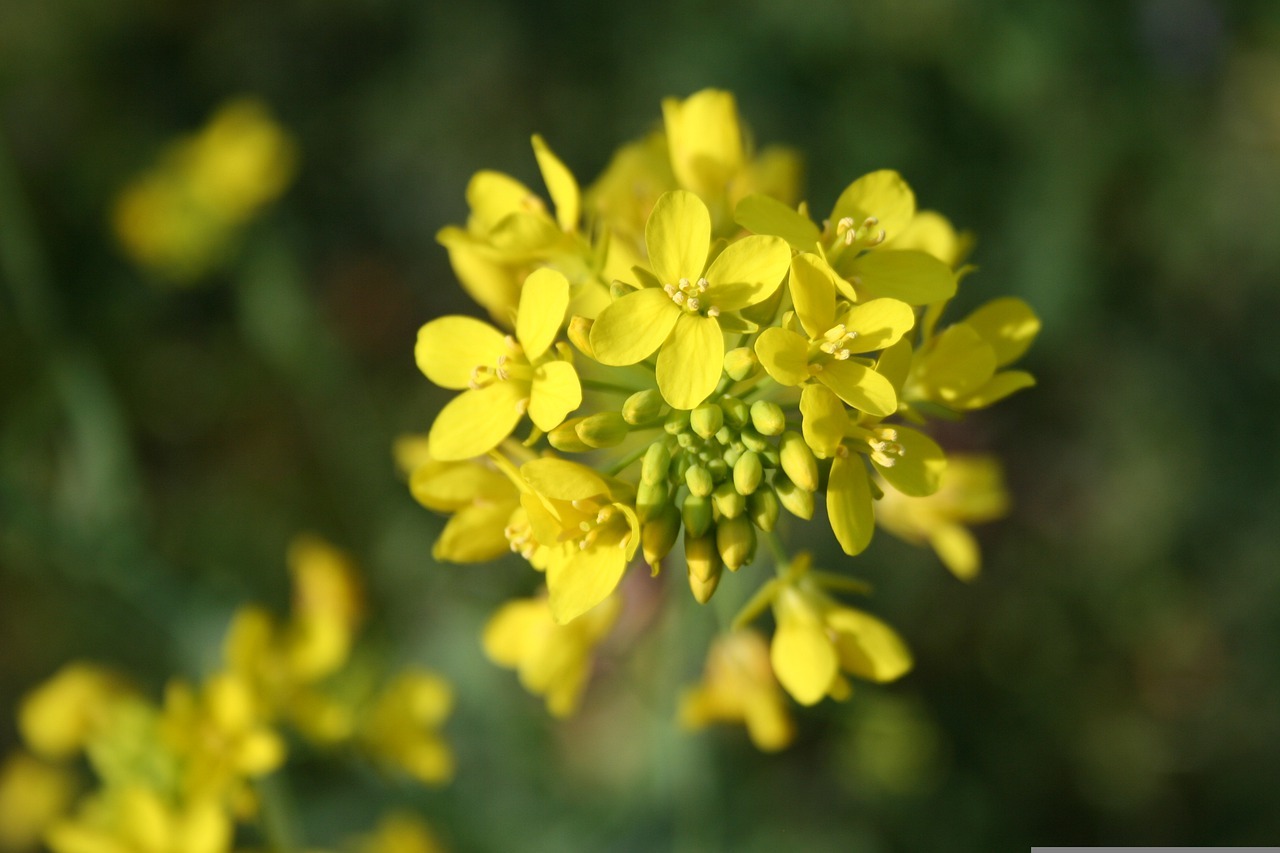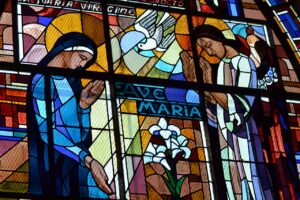Please note that there will be no scripture reflections posted on October 7th and October 14th. Susan’s scripture reflections will resume on October 21st.
Habakkuk 1: 2-3, 2: 2-4 (RM) or Habakkuk 1: 1-4, 2:1-4 (RCL): Psalm 95 or 37; 2 Timothy 1: 6-8, 13-14 (RM) or 1:1-14 (RCL); Luke 17: 5-10.
You can buy them in tiny glass vials sealed with a cork, in Israeli souvenir shops. Mustard seeds. And I actually brought one home. It’s sitting on a shelf in my bedroom in Ottawa. Why buy a tiny vial of souvenir mustard seeds in Israel when you could buy a container in the seasonings section of any large supermarket? Who knows? Travel to significant places makes you buy strange things.
Yes, the container is small, and the seeds are small. But quantity seems to be the opening theme of our Gospel reading for this week. Little dried seeds can be quantified. But where did we ever get the idea that faith can be quantified?
What is faith anyway? Simple credulity? And why is this an issue for Luke? It almost sounds like, for his hearers, faith equals power to do great big acts.
Neither of the Lectionaries gives us the first four verses of Luke chapter 17, but you need them to make sense of the two disjoint passages in our Gospel for today, the line about the mustard seed and the mulberry tree, and the rhetorical question about a boss serving a servant at table:
Jesus said to his disciples, “Occasions for stumbling are bound to come, but woe to anyone by whom they come! It would be better for you if a millstone were hung around your neck and you were thrown into the sea than for you to cause one of these little ones to stumble. Be on your guard! If another disciple sins, you must rebuke the offender, and if there is repentance, you must forgive. And if the same person sins against you seven times a day, and turns back to you seven times and says ‘I repent,’ you must forgive.”
No wonder they asked for more faith. They must have scared witless at Jesus’ demands for exemplary behaviour. This was more than they’d signed up for.
And for our purposes today we won’t go into the pressing contemporary issue of clerical abuse of little ones, which in our time seems to jump up at us from the text.
Faith was clearly thought to be the disciples’ external power source enabling them to accomplish demands that exceeded their own strength. But Jesus speaks to something more, something that must have been happening in Luke’s late-first-century Christian community – leaders characterized by self-aggrandizement. This seems to be the presenting point of the second passage.
But this example recalls another, recurring theme in the New Testament, intensely disturbing in our own time – the normalization of the institution of slavery. The attitude Jesus advocates – “we are useless servants [“worthless slaves” in the NRSV] and have only done our duty” – presumes self-submission in unquestioning obedience to a master who is free to use brutal force. This can’t be it.
So how can we move to a healthier place? Perhaps by seeing faith as a quality that clears a channel for sacred power to work through us. It doesn’t work if our egos stand in the way. And you don’t need much.
Commentator Francisco J. Garcia writes, “Everything in this passage … points to faith as a praxis, an ongoing spiral-like process of reflection, action, and grace that only ‘increases’ as the process itself unfolds and expands in breadth and depth.”
This insight points far beyond the idea that faith amounts to a dump of power, but rather to a quality of dialogue and cooperative action – the Holy One in us and with us, our thoughts and actions in graceful harmony with the will of Wisdom.
And that’s something to pray for. Every day.
© Susan K. Roll
Susan Roll retired from the Faculty of Theology at Saint Paul University, Ottawa, in 2018, where she served as Director of the Sophia Research Centre. Her research and publications are centred in the fields of liturgy, sacraments, and feminist theology. She holds a Ph.D. from the Catholic University of Leuven (Louvain), Belgium, and has been involved with international academic societies in liturgy and theology, as well as university chaplaincy, Indigenous ministry and church reform projects.





The very helpful line from your reflection that stays with me is “seeing faith as a quality that clears a channel for sacred power to work through us”. When that channel is clear, I know that wonders can (and do) happen.